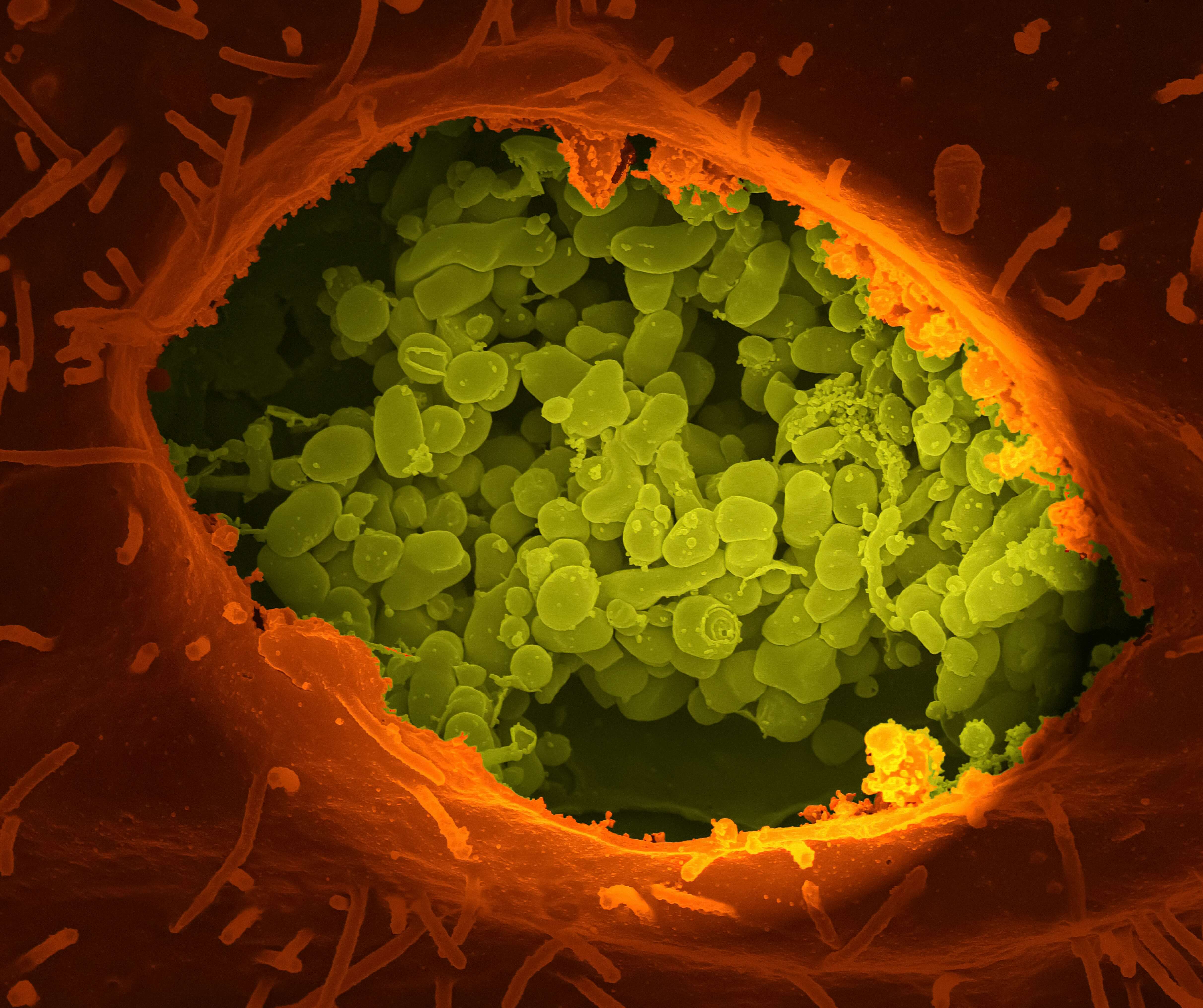Gut health isn’t just a trendy topic; it’s a cornerstone of our overall well-being. When your gut is healthy, you likely feel energetic and vibrant. On the flip side, poor gut health can lead to numerous issues, including the often embarrassing and uncomfortable problem of constipation. Let’s dive into how gut health directly affects constipation and what you can do about it.
What Is Gut Health?
Gut health refers to the balance and function of bacteria and other microorganisms in the digestive tract. This balance is crucial for digesting food, absorbing nutrients, and expelling waste efficiently.
Components of the Gut Microbiome
The gut microbiome is made up of trillions of bacteria, viruses, fungi, and other microorganisms. These organisms play essential roles in digesting food, producing vitamins, and protecting against harmful pathogens.
What Is Constipation?
Constipation is a common issue that can negatively impact gut health and overall well-being. Fortunately, several strategies can help alleviate constipation and promote better digestive health.
Constipation can be caused by a variety of factors, including a low-fiber diet, inadequate hydration, lack of physical activity, and certain medications. Gut health also plays a significant role in whether or not you experience constipation.
Role of Gut Flora
Gut flora, or gut microbiota, is the community of microorganisms living in your intestines. They help break down food, synthesize certain vitamins, and regulate the immune system. A balanced gut flora is essential for preventing digestive issues like constipation.
How Gut Flora Affects Digestion
Healthy gut flora helps to break down food efficiently and produce short-chain fatty acids, which are crucial for bowel movements. When the gut flora is imbalanced, digestion slows down, leading to constipation.
Impact of Imbalanced Gut Microbiome
An imbalanced gut microbiome, often due to poor diet, antibiotics, or stress, can disrupt normal digestive processes. This imbalance can reduce the production of essential digestive enzymes and alter gut motility, resulting in constipation.

Examples of Gut Bacteria and Their Roles
Beneficial bacteria like:
Aid in digestion and keep harmful bacteria in check. A deficiency in these good bacteria can contribute to digestive problems, including constipation.
Probiotics and Prebiotics
Probiotics are beneficial bacteria that can help restore the balance of gut flora. Prebiotics are types of fiber that feed these good bacteria. Including both in your diet can improve gut health and reduce constipation.
Foods rich in probiotics and prebiotics include:
- Yogurt
- Sauerkraut
- Miso Soup
- Soft Cheeses
- Kefir ·
- Sourdough Bread
- Acidophilus Milk
- Sour Pickles
- Garlic
How Bad Gut Health Leads to Constipation
When the gut microbiome is out of balance, it can lead to slower digestion and harder stools, both of which contribute to constipation.
- Unbalanced Gut Bacteria: Our gut has many good bacteria that help with digestion. When these bacteria are unbalanced, it can slow down our digestion and make it harder to poop.
- Inflammation: If the gut is unhealthy, it can get inflamed or swollen. This inflammation can slow down the movement of food through the intestines, leading to constipation.
- Less Mucus: A healthy gut makes mucus that helps stool move smoothly through the intestines. Poor gut health can reduce mucus production, making stools hard and difficult to pass.
- Slow Gut Movements: The intestines need to contract and move to push food along. If the gut isn’t healthy, these movements can slow down, causing constipation.
- Poor Diet: Eating too little fiber, too much processed food, or not enough water can harm gut health and cause constipation. Fiber helps make stools bulkier and easier to pass.
- Stress: Being stressed for a long time can affect gut health. Stress can slow down digestion and make it harder to have regular bowel movements.
- Medications: Some medicines, especially antibiotics, can upset the balance of good bacteria in the gut, leading to constipation.
Connection Between Gut Health and Constipation
Examples of Gut Bacteria and Their Roles
Beneficial bacteria like Bifidobacteria and Lactobacilli aid in digestion and keep harmful bacteria in check. A deficiency in these good bacteria can contribute to digestive problems, including constipation.
Diet and Gut Health
1. Importance of Fiber
Fiber is essential for a healthy digestive system. It adds bulk to the stool and helps it pass more easily through the intestines. Foods rich in fiber include fruits, vegetables, whole grains, and legumes.
2. Role of Hydration
Staying hydrated is crucial for preventing constipation. Water helps soften stools and promotes regular bowel movements. Aim for at least 8 glasses of water a day.
3. Probiotics and Prebiotics
Probiotics are beneficial bacteria that can help restore the balance of gut flora. Prebiotics are types of fiber that feed these good bacteria. Including both in your diet can improve gut health and reduce constipation.
Medical Conditions and Medications
1. IBS and Its Relation to Constipation
Irritable Bowel Syndrome (IBS) often involves chronic constipation. It’s important to manage IBS symptoms through diet, lifestyle changes, and, if necessary, medication.
2. Effects of Antibiotics on Gut Flora
Antibiotics can kill both harmful and beneficial bacteria in the gut, leading to an imbalance that may cause constipation. Taking probiotics during and after antibiotic treatment can help maintain gut balance.
3. Other Medical Conditions Affecting Gut Health
Conditions like:
- diabetes
- hypothyroidism
- neurological disorders
can impact gut motility and contribute to constipation. Managing these underlying conditions is key to improving digestive health.
Signs of Poor Gut Health
- bloating
- gas
- abdominal pain
- Irregular bowel movements
- Chronic fatigue
How It Leads to Constipation
When the gut microbiome is out of balance, it can lead to slower digestion and harder stools, both of which contribute to constipation.
- Unbalanced Gut Bacteria: Our gut has many good bacteria that help with digestion. When these bacteria are unbalanced, it can slow down our digestion and make it harder to poop.
- Inflammation: If the gut is unhealthy, it can get inflamed or swollen. This inflammation can slow down the movement of food through the intestines, leading to constipation.
- Less Mucus: A healthy gut makes mucus that helps stool move smoothly through the intestines. Poor gut health can reduce mucus production, making stools hard and difficult to pass.
- Slow Gut Movements: The intestines need to contract and move to push food along. If the gut isn’t healthy, these movements can slow down, causing constipation.
- Poor Diet: Eating too little fiber, too much processed food, or not enough water can harm gut health and cause constipation. Fiber helps make stools bulkier and easier to pass.
- Stress: Being stressed for a long time can affect gut health. Stress can slow down digestion and make it harder to have regular bowel movements.
- Medications: Some medicines, especially antibiotics, can upset the balance of good bacteria in the gut, leading to constipation.
Improving Gut Health to Alleviate Constipation
Dietary Changes
- Increase Fiber Intake: Fiber adds bulk to stool and helps it pass more easily through the intestines. Aim for a mix of soluble fiber (found in oats, fruits, and beans) and insoluble fiber (found in whole grains, vegetables, and nuts).
- Stay Hydrated: Drinking plenty of water helps soften stool, making it easier to pass. Aim for at least eight glasses of water a day.
- Incorporate Probiotics: Foods rich in probiotics, such as yogurt, kefir, sauerkraut, and kimchi, can help maintain a healthy balance of gut bacteria, promoting regular bowel movements.
- Limit Processed Foods: High-fat, low-fiber foods can slow down digestion. Try to reduce intake of processed snacks, fast food, and sugary treats.
Lifestyle Adjustments
- Regular Exercise: Physical activity stimulates the muscles in the intestines, helping to move stool through the digestive tract. Aim for at least 30 minutes of moderate exercise most days of the week.
- Establish a Routine: Try to set aside time each day for bowel movements, especially after meals, as the digestive system is more active.
- Avoid Holding It In: Ignoring the urge to go can lead to harder stools and worsen constipation.
Natural Remedies
- Herbal Teas: Teas like peppermint or ginger can soothe the digestive system and help with regularity.
- Flaxseeds: Adding flaxseeds to your diet can provide a natural source of fiber and omega-3 fatty acids, aiding digestion.
- Psyllium Husk: This natural fiber supplement can help increase stool bulk and promote regular bowel movements.
Medical Options
- Over-the-Counter Laxatives: These can be used occasionally, but should not be relied on long-term as they can cause dependency and worsen constipation over time.
- Stool Softeners: These can help by drawing water into the stool, making it easier to pass.
- Consult a Doctor: If constipation persists despite dietary and lifestyle changes, seek medical advice to rule out underlying conditions and discuss other treatment options.
Supplements and Gut Health
Probiotic Supplements
Probiotic supplements can help replenish good bacteria in the gut, especially after antibiotic use or during digestive distress. They come in various strains, each with specific benefits.
Fiber Supplements
If you struggle to get enough fiber from your diet, fiber supplements like psyllium husk can help. They add bulk to the stool and promote regularity.
Herbal Remedies
Herbal remedies like ginger, peppermint, and chamomile can soothe the digestive tract and improve gut health. These herbs have been used traditionally to alleviate digestive issues, including constipation.
Preventative Measures
- Balanced Diet: Consistently consuming a diet rich in fruits, vegetables, whole grains, and legumes can prevent constipation.
- Adequate Hydration: Regular water intake is essential for maintaining soft stools and proper digestion.
- Regular Physical Activity: Ongoing exercise supports a healthy digestive system and prevents constipation.
By making these adjustments and paying attention to your body’s signals, you can effectively manage and prevent constipation, leading to better gut health and overall well-being.
When to See a Doctor
Persistent Symptoms
If constipation persists for more than a few weeks, it’s important to see a doctor. Chronic constipation can indicate underlying health issues that need medical attention.
Severe Pain or Discomfort
Severe abdominal pain, blood in stools, or sudden changes in bowel habits warrant immediate medical attention. These symptoms could indicate serious conditions that require prompt treatment.
Other Warning Signs
Unexplained weight loss, persistent fatigue, and other unusual symptoms should also be discussed
Frequently Asked Questions
- Can poor gut health cause chronic constipation?
Yes, poor gut health can indeed cause chronic constipation. The health of your gut, or gastrointestinal system, plays a critical role in digestion and bowel movements. - What foods should I avoid if I’m constipated?
- Processed Foods
- Red Meat
- Dairy Products
- Fried and Fatty Foods
- Refined Grains
- Unripe Bananas
- Caffeine
- Alcohol
- Chocolate
- Certain Supplements
- How quickly can dietary changes improve constipation?
The speed at which dietary changes can improve constipation varies from person to person, but many individuals notice improvements relatively quickly, often within a few days to a week - Are there any risks with taking probiotic supplements?
Yes, while probiotic supplements are generally considered safe for most people, there are some potential risks and side effects to be aware of:
- Digestive Symptoms
- Infections
- Unintended Immune Responses
- Risk for Individuals with SIBO
- Allergic Reactions
- Interactions with Medications
- Quality and Regulation Concerns
- What lifestyle changes are most effective for improving gut health?
- Increase Fiber Intake
- Stay Hydrated
- Eat Probiotic Foods
- Eat Prebiotic Foods
- Exercise Regularly
- Manage Stress
- Get Enough Sleep
- Avoid Smoking and Limit Alcohol
- Eat Mindfully
- Limit Processed Foods
- Moderate Caffeine Intake
- Consider Supplements
- Pay Attention to Symptoms
- Maintain a Balanced Lifestyle

